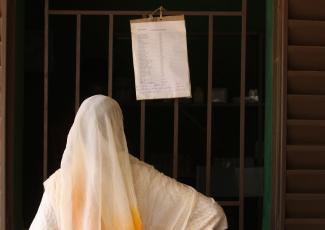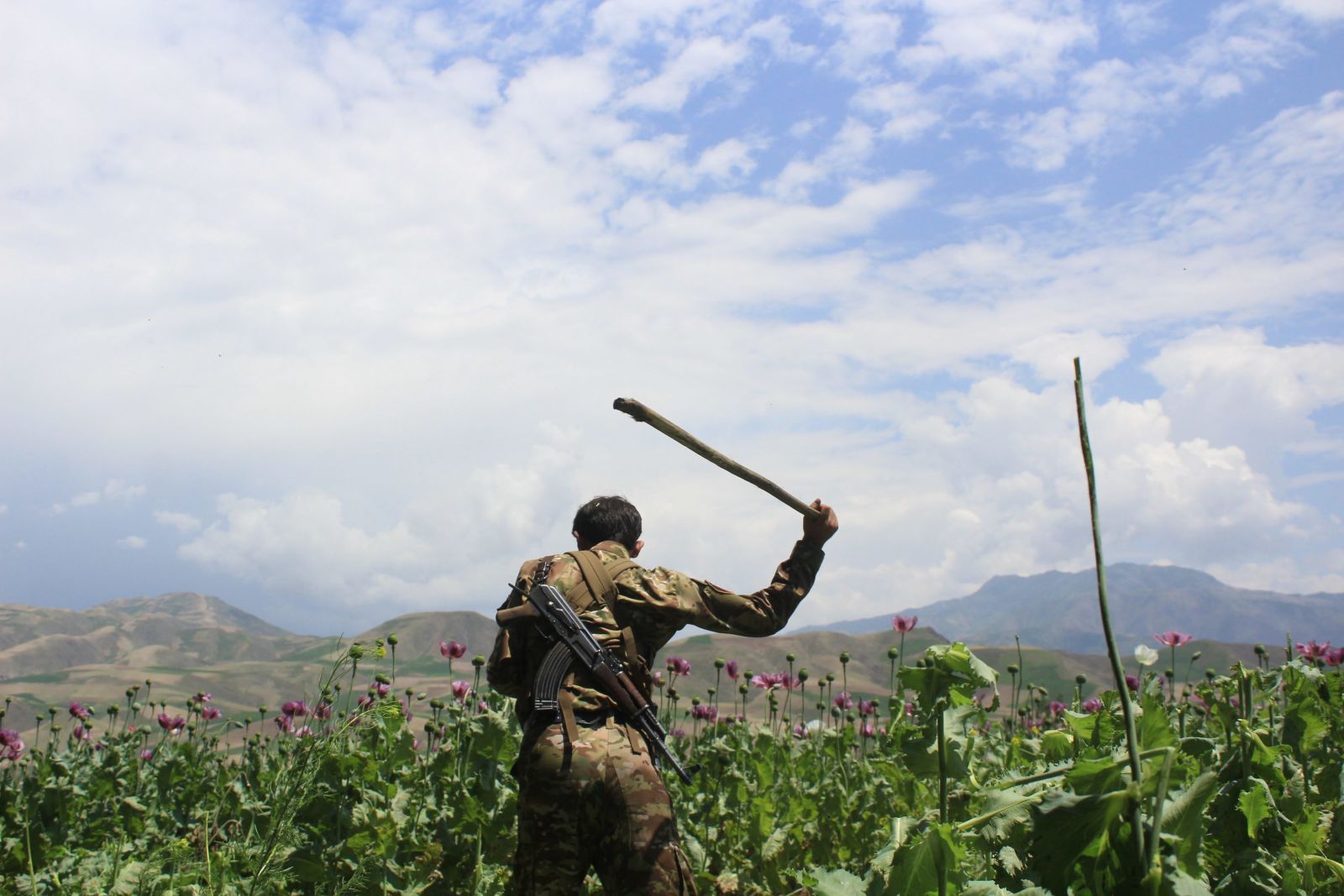Health care
Epicenter of fake pharma

Tramadol is an opioid pain medication. Unlike other powerful and addictive opioids, such as methadone or fentanyl, for example, it is not regulated by the International Narcotics Control Board. The consequence is that every country must pass its own regulation. Governments only do so, however, once they see a problem.
Tramadol is valuable for medical purposes, but it can also be abused as a stimulant. It can improve peoples’ mood and enable them to work harder. Those who get used to the drug, however, need ever higher dosages to keep functioning at all.
Sub-Saharan Africa is currently experiencing a serious tramadol crisis. The medical journal The Lancet published a report in May in which it likened the West African scenario in particular to the current opioid crisis in the USA. A huge black market has emerged. High potency pills with up to 250 mg are available, though doctors would hardly subscribe more than 100 mg pills for medical purposes. An increasing number of addicts overdose and die. There are hardly any rehab facilities for those who want to kick the habit to find professional support.
According to The Lancet, African governments have begun to wake up to the problem. The painkillers are typically manufactured in Asia. Some are generic pharmaceuticals, but there are also counterfeit versions. Yearly seizures of tramadol in sub-Saharan Africa are said to have risen from 300 kg five years ago to more than three tons.
However, governments struggle to pass appropriate laws and enforce them stringently. The depressing truth is that many African countries lack effective regulatory systems for medical drugs. The mind-altering opioid tramadol is part of a bigger problem, which has several dimensions. Quality pharmaceuticals are often unaffordable or unavailable, so sub-standard, counterfeit and fake drugs are sold. Generics, most of which are produced in India, flood African markets. The quality, however, tends to be unreliable. Researchers from the London School of Hygiene and Tropical Medicine have found that some 64,000 to 158,000 people die of malaria every year because of low-quality or falsified antimalarial drugs.
The bigger picture
According to the International Crime Police Organization (Interpol), Africa is a the heart of the “biggest black market in the world”. The Jacques Chirac Foundation estimates that the trafficking of pharmaceuticals is worth an annual $ 200 billion. One of the topics the Foundation, which was launched by the former French president, is involved in is promoting access to health care and quality drugs.
The World Health Organization (WHO) has stated: “Low- and middle-income countries, those in conflict, and those with weak or no health systems bear the brunt of the problem of fake medical products.” Many African countries are in this group, and they constitute the most important markets for the deadly trade. The US Food and Drug Administration reckons that one in ten drugs sold around the world is probably fake, and experts believe that the respective shares probably range from 30 % to 70 % in sub-Saharan countries.
Between 2013 and 2017, the WHO received 1,500 case reports of sub-standard or falsified medicines, and 42 % of these reports came from sub-Saharan Africa. This shows that Africa is the epicenter of the illicit pharma market. Between mid-May and mid-June 2017, Interpol led an operation to fight the trafficking of fake medicines in seven West African countries: more than 41 million fake tablets and 13,000 cartons of medical and pharmaceutical products were seized. Their estimated worth was more than $ 20 million.
According to the WHO, the illicit pharma business is facilitated by ever more people having access to the internet. In 2008, Interpol and the International Forum on Pharmaceutical Crime in the World launched an operation called “Pangea”. It is a global initiative to fight the online sale of illicit and counterfeit medicines. It involves customs authorities, the police, health regulators and private-sector companies. It focuses on the three components illegal websites depend on: internet service providers, payment and delivery systems. One aspect is to raise awareness of the dangers that are related to buying medicines online. Pangea is now being run in 100 countries.
The main reasons for African pharma markets being dysfunctional are poverty, overburdened health-care systems and bad governance. “To sell fake medicines, you need customers,” Marc Gentilini, a former president of the French Red Cross, has said, “and there are more poor patients in Africa than anywhere else in the world.” Considering the low average incomes of African people, quality drugs are often unaffordable. Moreover, properly regulated distribution systems would be quite complex – too complex for regulatory authorities lacking adequate resources. Cool chains, for example, have a propensity to fail, if they exist at all. Porous borders compound the problems.
Interpol has spelled it out clearly: “Drug trafficking can only be effectively combated in the long-term.” It calls for full-time mobilisation and cooperation of customs, health and law-enforcement agencies from around the world. African governments know the strategies that would change matters. This is more a problem of political will than one of ideas. A good place to start would be providing more reliable and more comprehensive information on the risks and benefits of pharmaceuticals to the public.
Assane Diagne works for the Dakar office of Africa Check, the fact-checking media agency.
assane@africacheck.org









